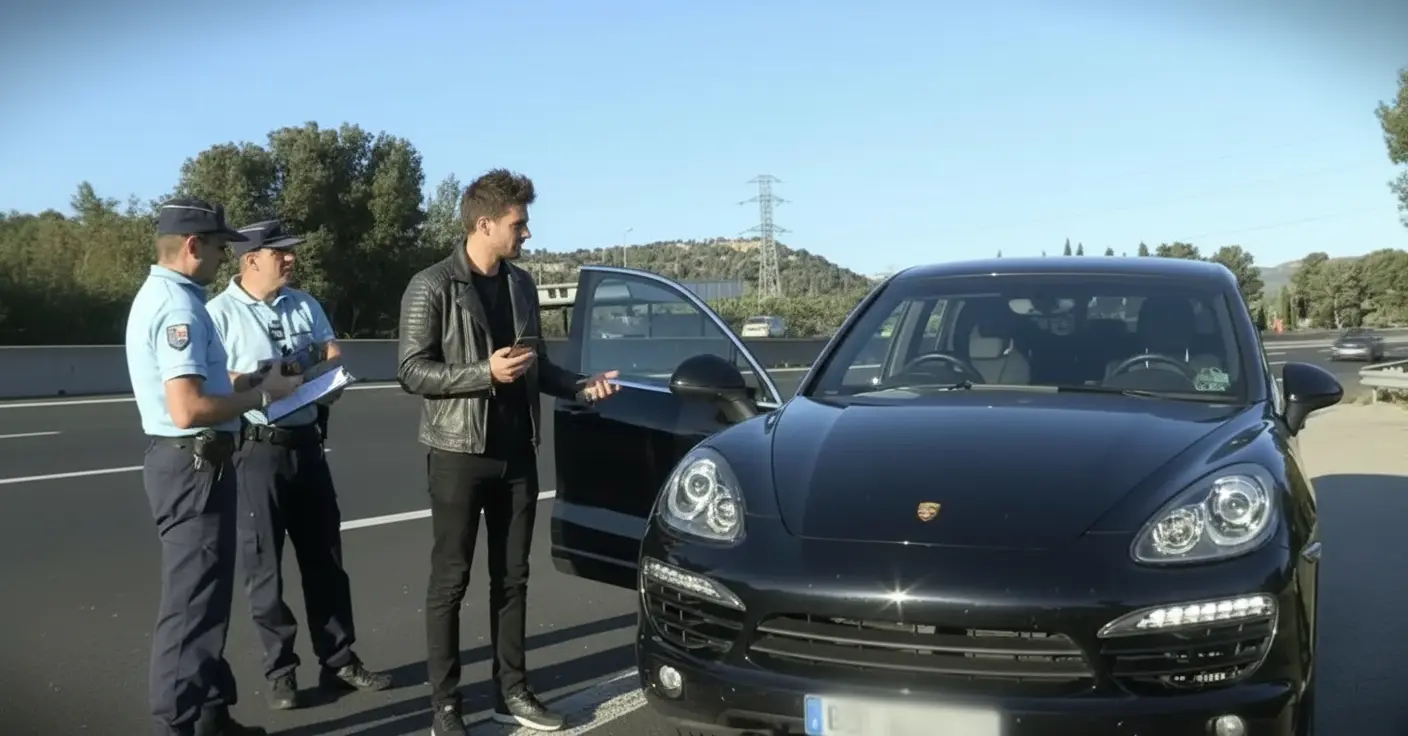When a Porsche Panamera was caught zipping along at an unthinkable 321 km/h, more than two and a half times the posted limit, even the most jaded traffic cops had to rub their eyes. What happens when the fastest speed ever recorded by a local police radar meets a law more used to highway anarchy than Swiss-level discipline? Fasten your seatbelts—here’s the tale, consequences included.
A Record-Breaking Flash: 321 km/h, No Excuses
According to local police, this was indeed the fastest speed ever registered by this type of radar. On July 28, west of Berlin, an eagle-eyed speed trap clocked a motorist at 321 km/h (that’s just shy of 200 mph for those who prefer imperial thunder). The catch? This wild ride took place on a road with a 120 km/h limit, not one of the infamous unlimited stretches German car enthusiasts love to wax lyrical about.
Those fascinated by the Autobahn might still be wiping away a tear of pride. After all, the Autobahn is world-famous for having no speed restrictions. But, as every driver who has crossed the Rhine at a timid 135 km/h knows, the myth isn’t the whole story. Many sections—especially those undergoing works or highly trafficked—do impose strict speed limits. As one driver quipped, missing a restriction or outright ignoring it isn’t that hard if you’re determined, though you risk meeting the flash of the law (and not the kind that involves headlights and polite overtaking signals).
The Car, the Penalty, and a Public Outcry
Make no mistake: the man was at the wheel of a lethal beast—a Porsche Panamera, the sort of car that looks fast even when parked. For his record-breaking dash on Autobahn 12, local broadcaster MDR reported that the penalties lined up as follows:
- A fine of 900 euros
- Two penalty points on his license
- A three-month driving ban
Now, let’s put things in perspective. Doing 321 instead of 120 km/h isn’t exactly a whoops-my-foot-slipped moment. As sarcastically pointed out: that ‘small’ difference is quite noticeable on any speedometer—and presumably also on the sweat-soaked forehead of the driver. Is this punishment enough? Many are left scratching their heads. For a premeditated act, some say the monetary slap on the wrist and two points seem more like a polite suggestion to consider carpooling next time.
One commenter suggested something a bit more radical: confiscate the car, sell it, and use the money for road accident victims. Others called for at least a one-year ban from driving. After all, less egregious offenses often lead to harsher proportional punishments, and the notion of « more controls » is echoed by many who see speed demons as slipping through the net.
Danger Beyond Numbers: What If…
It’s tempting to see speeding records as merely statistics, but the real issue is what might have happened if another car—traveling calmly at 120 km/h—had tried to overtake a slower moving vehicle (say, at 90 km/h), only to be blindsided by a rocket on wheels. The result could have been catastrophic, with no shovels or rakes big enough to gather up the aftermath, as one rather morbidly put it.
In reality, many travelers on German highways rarely encounter such extreme excesses. As experienced drivers point out, restricted-speed zones aren’t that common, but they’re far from rare, and sometimes the rules are missed—or flat-out challenged. On his own journeys, one motorist recalled seeing rare sports cars blasting by at warp speed, with frenzied headlight flashes sometimes marking the start of the adventure, especially after crossing the fabled Rhine (albeit at a much saner 135 km/h—pure comedy, as he admitted).
Reflections: Speed, Punishment, and Perspective
The story of the Porsche Panamera caught at 321 km/h boils down to more than just the thrill of mechanical excess. For critics, the incident exposes a mismatch between outrageous road behavior and the severity of the legal consequences. If the point of traffic law is to deter premeditated risk on public roads, perhaps a fine that would barely buy a new set of Porsche tires isn’t quite enough. Should such transgressions trigger far harsher penalties, perhaps even the loss of the prized machine itself?
Maybe the next time someone feels the urge to shatter records west of Berlin, they’ll remember: sometimes, the chase isn’t worth the catch. And if you’re daydreaming about life in the fast lane, take a moment to spot those speed limit signs—they’re not just for show.

John is a curious mind who loves to write about diverse topics. Passionate about sharing his thoughts and perspectives, he enjoys sparking conversations and encouraging discovery. For him, every subject is an invitation to discuss and learn.






